Leigh Donlan reports from Gray Area in the Mission:
Jess Curtis’ Gravity celebrated their 15th anniversary at Gray Area in the Mission this weekend.
The evening length Intercontinental Collaborations #6 challenged our cognitive preconceptions and how we choose our thoughts, with intimate moments of sensuality and vulnerability woven throughout.
The Way You Look (at me) Tonight, the evening’s premiere, was a fledgling compared to the rest of the pieces (it will be presented again next Fall) but was conceptually compelling. An experiment in peripheral tension, Curtis, together with disabled artist Claire Cunningham and philosopher Alva Noë, moved slowly through the audience seated on the floor, keeping tabs on one another without any direct gaze or contact – rather like a game of non-touch tag. They would drop randomly to do push-ups. One interlude had Curtis screaming “Fuck off, peripheral hipsters!” which made me chuckle smugly until Curtis explained that he was not addressing certain audience members at all (which made me feel guilty about my own snap judgments.) Through free-form pedestrian movements, writhing and stretching on the floor, he released hip pain, while Cunningham mimicked a Scottish Highland dance teacher, rigidly teaching pupils the five positions of the dance – perhaps an allusion to ballet and the hip pain it often causes. (Meanwhile, I uncomfortably shifted my war-torn ballet hips in my seat.) The work ended with Cunningham discarding her walking canes to climb a ladder. A screen projected a lengthy list of all the things she has never done before: “I’ve never given birth, I’ve never been arrested … ” Finally, she sat atop the ladder, singing hauntingly, in her classically trained Scottish voice, the Robert Burns poem “John Anderson, My Jo” a wistful commentary on the aging of one’s lover.
Performance Research Experiment #1 required the participation of the audience. When the audience grew bored or intrigued with Curtis’ and Jörg Müller’s humorous and highly physical interactions – which included precariously balancing a broom on and in certain areas of the body, and the disrobing of numerous pairs of layered tighty-whiteys – we were to yell a number that would quicken or slow the performance. This self-supporting methodology reaped interesting results as the audience had to work together. Before the experiment started, Curtis suggested that we be kind: “There are a lot of attention spans in here. Don’t get mad at people.” The experiment often felt like more of a mediation tool than a performance, requiring the audience to analyze their own thought processes, individually and cohesively, and then make decisions that affected the experience of the group.
The Dance That Documents Itself was performed by Curtis and his partner, Rachael Dichter. Once again, I found myself questioning my preconceptions as I held their bodies in my gaze – Curtis completely naked and Dichter dressed in a fur coat, leopard pants and bright teal platform pumps. The two exchanged “I want you to… ” statements with long, thoughtful pauses in between: “I want you to think about this from a feminist perspective,” “I want to know if you think of me subjectively or objectively when I’m naked,” “I want you to have a bigger car,” “I want you to pull my hair and stick your fingers down my throat,” “I want you to hold my hand for a long time,” and then the lights faded to black.
The only request that was physically acknowledged was Curtis’ “I want you to kiss me.” Dichter complied.
The voicing of their own needs deepened the couple’s connection and staved off defenses – a healthy alternative to our culture’s tendencies toward accusation and blame (there I go judging again.)
And finally, there was Mobile, a transcendentally mesmerizing piece created and performed by Jörg Müller. With five metallic, resonant tubes suspended from a single point on the ceiling, Müller, like a magician, orchestrated a visual and aural symphony, casting the tubes into a variety of patterns with his hands. The resonant sounds – created by the air rushing through the tubes – seemed to elevate our minds and bodies. A hush came over the audience. There was a feeling of floating through space as these benign stray objects came whooshing by our faces. And Cunningham’s haunting voice again filled the darkening room as she sang Bach’s BWV 4 Cantata: “Den Tod niemand zwingen kunnt” or “death could capture no one.”
The evening was a thought-provoking, thought-challenging experience that left me more aware of my preconceptions about myself and about others, and prodded me to choose my thoughts more carefully.
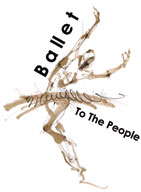
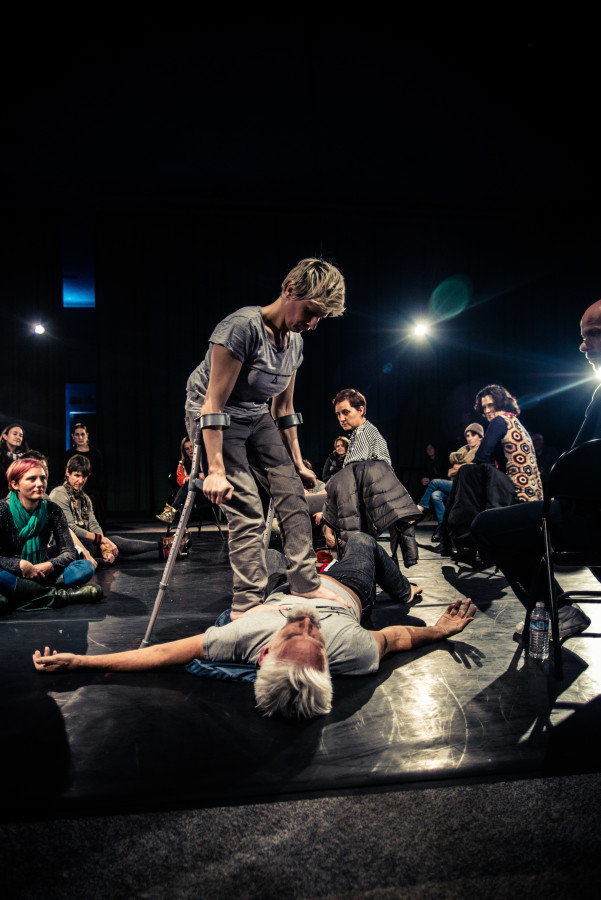
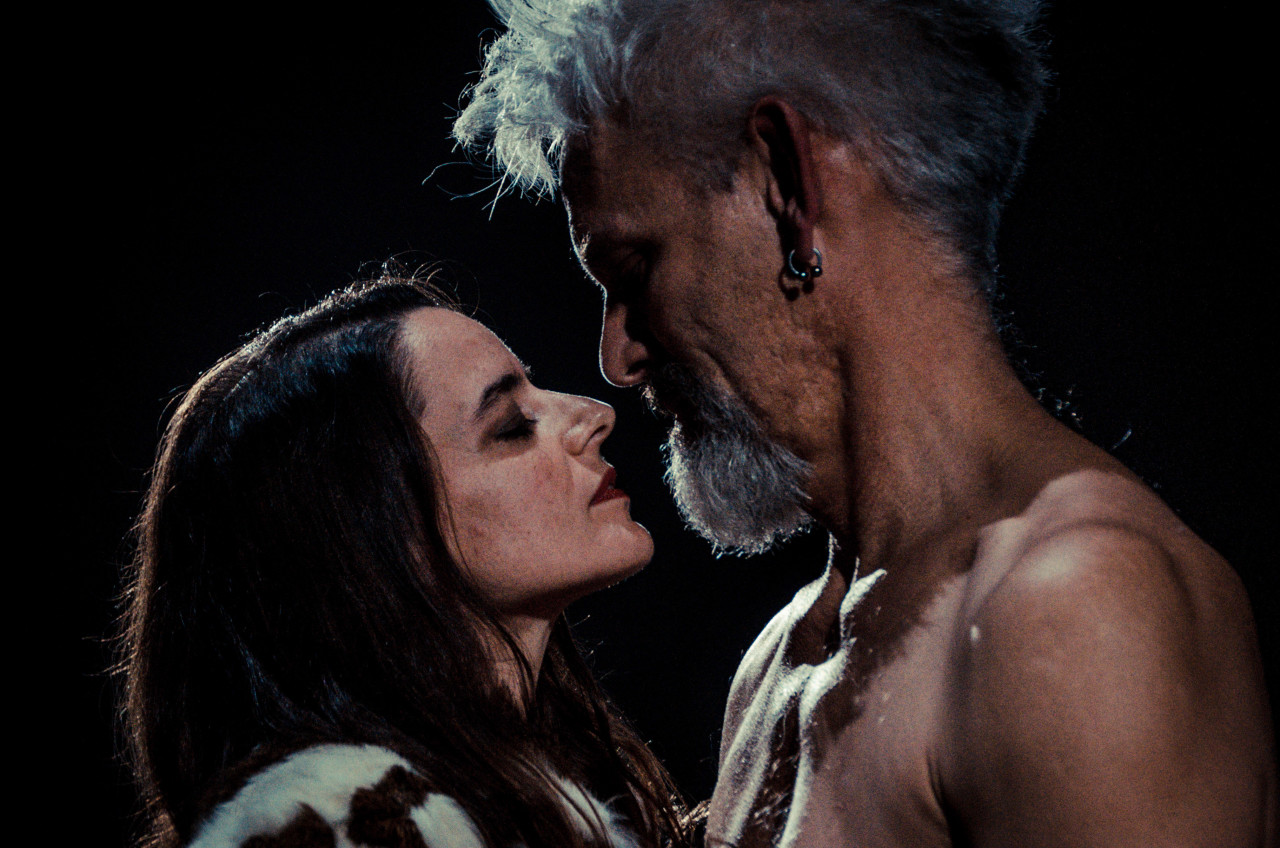
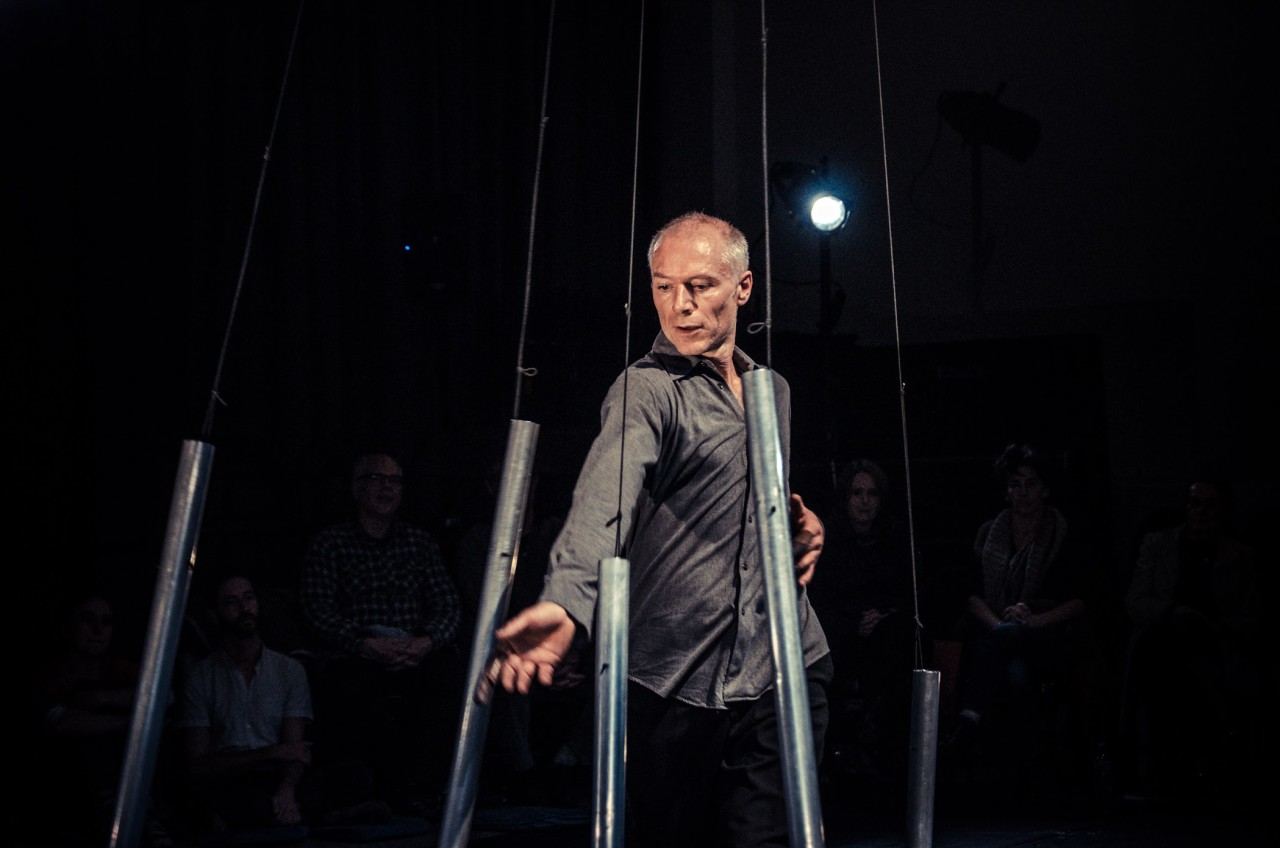
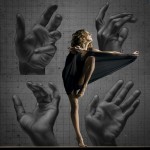
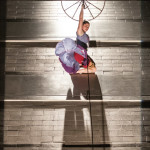
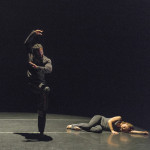

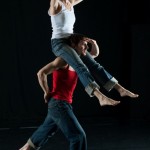
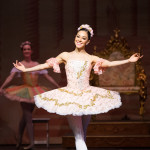
Oh how I wish I’d seen this.